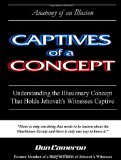Arabic Name Tags
Would you like to see your name written in beautiful Arabic letters? The author of My Name in Arabic is offering framed tags for free. I’ve reduced them 50% for display here, but I’ve got the originals for email signatures.
PLEASE stop requesting me to do these for you! I don’t know Arabic – click on the above link for requests.
Here is the simple image for “Heidi”: 
Heidi has no equivalent I know of in Arabic. However, it’s funny how it sounds like some other words. In Lebanese Arabic, ‘Heidi’ means ‘this’ or ‘that’. In Berber, like Tashelhit spoken in North Africa, ‘Heidi’ means ‘here is the dog’, ‘aydi’ meaning a ‘dog, and ‘ha’ used as a demonstrative pronoun. I thought it would be funny for you to know about that.
Yeah, funny. Makes me think of all the German Shepherds I have met who shared my name.*
Here is the transliteration of my first (and last name) in a beautiful frame.
 About my last name:
About my last name:
G has no equivalent in Arabic, so we use a close letter to it, that sounds like French R.
He (or she?) was very generous, and also translated VirusHead. This wasn’t transliterated by sound, because it’s not really a name but rather two translatable words mushed together.

‘Virus” is the same, and “head” is “ra’as.” In Arabic, “head” comes first, so it would be “the head of the virus.”
“Head of the virus” evokes very different meanings for me than “VirusHead.”
I’m thinking of some structure not unlike …um …. let’s say a tadpole.
Or maybe a being with superpowers over viral colonies – the Virus Queen? Heh-heh
Actually, when I was thinking about viruses day and night, I sometimes felt that they resisted – as though the abyss began to stare back at me. There were enough coincidences and even synchronicities to make me toy with magical thinking. When you’re thinking about one kind of thing most of the time, I think it’s natural to start seeing all kinds of connections – even to start projecting them. We are creatures of pattern recognition. I never thought of myself as controlling viruses, but rather felt at times as though they were playing with me. I tended to anthropomorphize, as did many of the authors. I had to keep reminding myself, especially when I was states of information overload, that viruses have no agency. They don’t intend anything. They don’t have a brain, and they don’t think. We’re not even sure about whether or not they are technically alive – at the very least, we’ve had to rethink the definitions of life.
This kind of gonzo scholarship produced insights, though – especially for the AIDS chapter and the chapter on vampires and communion. If the Ph.D. is meant to celebrate mastery over one very small specialization, I guess I could claim to be the “head” of the virus. However, it also reminds me of some of the biblical interpretations of headship, such as the husband’s power over the wife. Sometimes people forget that even in the most literal interpretations, the individual man is given power over his wife only on the condition that he love her as himself.
(Dominion. If I remember correctly, the meaning of the Hebrew word (rdh or radah) is better translated as something like “stewardship” or “guardianship” – which puts a man in the position of guardianship and care – the responsibility to care for and protect. Even in strong instances of its use, the implication is that of a benevolent rule where the ability to direct is linked to the requirement of the ruler to care for his subjects. Adam was put into the Garden to serve it and till it (‘abad) and to guard and preserve it (shamar). There is also a pun between the meanings of Adam and ground – humans are made from and part of the earth, not lords over it. Our “radah” relationship to creation is to represent God back to it, to develop and refine and beautify it. Our ‘radah’ is to be, not for our own sake, but for the sake of the other. In that sense, it is a form of service, not mastery. It reverses the harm done by exploitation, and models righteousness.
A steward is someone who looks after property, farm – crops and animals – you know, husbandry – while the lord is away. All very evocative. The steward does not own the land, you know, just as we do not own the earth. When the lord returns, there is an accounting of how well the steward cared for the lord’s interests… I guess if we destroy the planet, the cockroaches shall then have “dominion.”)
In any case, I have no dominion over actual viruses (the -es form is incorrect, but customary and much less awkward in English), nor do I have mastery over the complex bio-chemical transactions of the virus. But perhaps I could imagine myself as an emissary of the mute and mostly invisible virus, a representative to the court of human imaginaries. Something like that. I do not see a crown/head of power in that – nor the phallus/head of domination. But I do hold in stewardship a set of ideas and connections regarding viral forms, figures, associations, and family resemblances. More like the poet, translator, word-painter – or the one who arranges family picnics. Did you know that matrix is Latin for womb? I am alert to, let’s say, pregnant viral moments of replication/mutation, contagion, interconnection, networked lines of association – tracing out the emergent discourse of the viral, seeing that the discourse itself shows viral characteristics and tendencies. I think of the shimmering stories of Jorge Luis Borges – and I always felt as though I were softly, tentatively exploring the garden of forking paths – or the library of Babel.
* from above: In personality, I’m not so much like a German Shepherd myself, but am closer to a Canaan or Bernese Mountain Dog – at least according to these blog quizzes.
Which breed of dog is most like you?
Bernese Mountain Dog (Bernese Sennenhund) – No bones about it, you’re a good-hearted, people-loving Bernese Mountain Dog. Down-to-earth and loyal, no one works or plays harder than you do. You put your nose to the grindstone when it really counts, but you never neglect your social calendar. Simultaneously strong and sweet, you’re very tuned-in to the feelings and needs of the other dogs you run with. Without having to be asked, you always have a helping paw to lend and a sympathetic shoulder to lean on. “Communication” is your middle name, and when that’s paired with your unswerving devotion, you get a breed that everyone respects and trusts. Woof!



